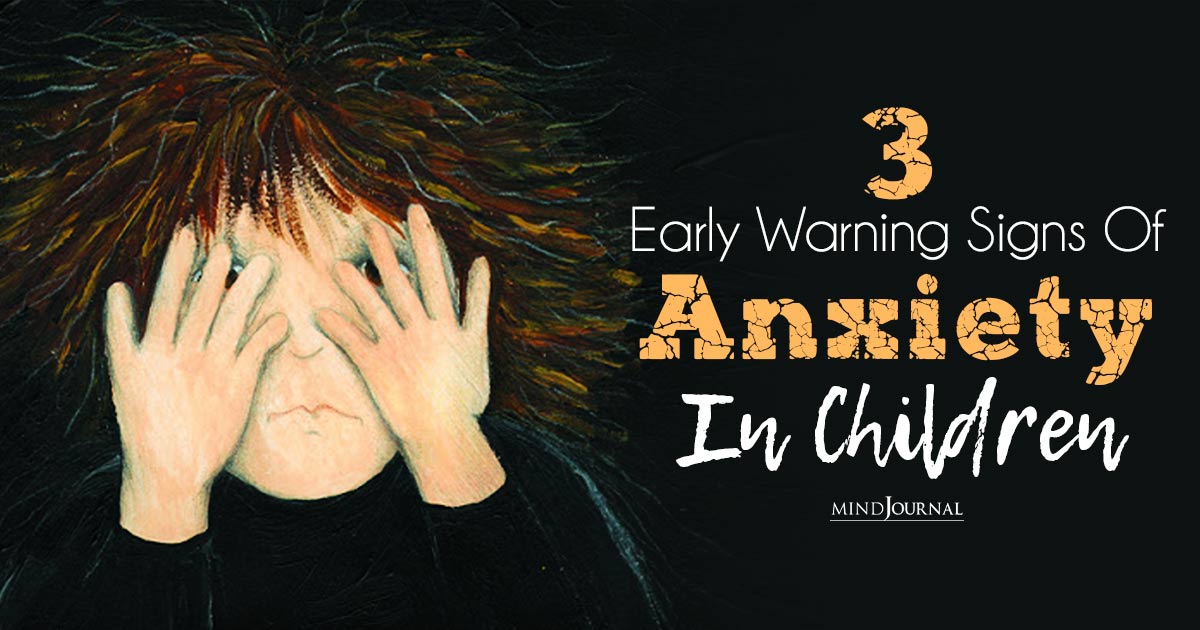Does your child struggle with irrational fears and worries? While these could be a normal part of growing up, they could also be signs of something more serious. Let’s take a look at anxiety symptoms in children.
As parents, we often strive to create a safe and nurturing environment for our children, but sometimes, we may overlook the subtle signs of mental health issues that they exhibit. Today, we are going to shed light on what causes anxiety in children, its signs, and how to treat anxiety in children.
By understanding these crucial aspects, we can provide the support and care our children need to navigate their anxiety and flourish.
What is Anxiety in Children?
Anxiety is a natural response to stressful or unfamiliar situations, even in children. It is a normal part of their emotional development, helping them recognize and respond to potential dangers. However, when anxiety becomes excessive, persistent, and interferes with daily life, it can be a cause for concern.
Anxiety in children manifests as intense worry, fear, or nervousness, disrupting daily life. Triggers include school stress, social pressures, or family issues. Parents play a crucial role in supporting children, listening to their concerns, and teaching coping skills. Providing a safe and understanding environment encourages open communication.

Seeking professional help from therapists or counselors may become necessary for severe cases. Understanding and addressing childhood anxiety early on can prevent long-term emotional difficulties and support children in developing healthy coping mechanisms for life.
Related: Anxiety In Children: 15 Calming Things You Can Say As A Parent
Anxiety Symptoms in Children That Most Parents Ignore
Wondering if your child is struggling with anxiety? Here are some subtle signs of anxiety in children often overlooked by parents, crucial for early identification and intervention to support mental well-being –
1. Physical Symptoms
- Stomach aches or headaches
- Difficulty sleeping or nightmares
- Fatigue or restlessness
- Muscle tension and aches
- Rapid heartbeat or shortness of breath
- Changes in eating habits, such as loss of appetite or overeating
2. Emotional Symptoms
- Excessive worry about everyday events
- Irrational fear beyond what is expected for their age
- Irritability or mood swings
- Tearfulness or frequent crying
- Avoidance of certain activities or places
- Difficulty concentrating or focusing
3. Behavioral Symptoms
- Clinginess or excessive need for reassurance
- Social withdrawal, isolation or preferring to be alone
- Perfectionism or fear of making mistakes
- Tantrums or meltdowns
- Ritualistic behaviors or compulsions
What Causes Anxiety in Children?
Anxiety symptoms in children can stem from a combination of genetic, environmental, and psychological factors. Some common causes include:
1. Family History
Children with a family history of anxiety or mental health disorders may be more prone to experiencing anxiety themselves.
2. Traumatic Events
Experiencing or witnessing a traumatic event, such as accidents, natural disasters, or violence, can trigger anxiety symptoms in children.
3. Overprotective Parenting
While our intentions as parents are often good, overprotective behaviors can inadvertently contribute to a child’s anxiety. Constantly shielding them from potential risks may prevent them from developing coping skills and resilience.
4. School or Peer Pressure
Academic pressures, bullying, or social challenges at school can significantly impact a child’s mental well-being, leading to anxiety symptoms.
5. Major Life Transitions
Significant life changes like moving to a new home, starting a new school, or the arrival of a new sibling can disrupt a child’s sense of security, triggering anxiety. This is what causes anxiety in children.
Related: 11 Anxiety Disguises In Kids That Many Parents Fail To Notice
7 Effective Ways How to Treat Anxiety in Children

Recognizing and addressing anxiety in children is crucial for their overall well-being. Here are some practical strategies to help you manage and treat anxiety symptoms in children:
1. Open Communication
Encourage your child to express their worries and fears openly. Create a safe and non-judgmental space where they feel comfortable sharing their thoughts and emotions.
2. Validate Their Feelings
Let your child know that their feelings are valid and that it’s okay to be anxious. Offer reassurance and support while acknowledging their concerns.
3. Teach Relaxation Techniques
Introduce relaxation techniques such as deep breathing exercises, visualization, or mindfulness practices. These techniques can help children calm their minds and bodies during moments of anxiety.
4. Gradual Exposure
Gradually expose your child to feared situations or objects in a controlled and supportive manner. This process, known as systematic desensitization, helps them confront their fears gradually and build confidence.
5. Establish Routine and Predictability
Children thrive on routines and predictability. Creating a structured daily routine can provide them with a sense of stability and reduce anxiety levels.
6. Encourage Healthy Coping Mechanisms
Teach your child healthy coping mechanisms, such as engaging in physical activities, pursuing hobbies, or journaling. These activities can serve as effective outlets for stress and anxiety.
7. Seek Professional Help
If your child’s anxiety symptoms persist or significantly interfere with their daily life, consider seeking professional help from a mental health specialist.
A qualified therapist can provide appropriate interventions, such as cognitive-behavioral therapy (CBT) or play therapy. This is the best tip on how to treat anxiety in children.
Takeaway
Anxiety symptoms in children should not be ignored or brushed aside. By being aware of the signs of anxiety and understanding its potential causes, we can provide our children with the support they need.
Remember, open communication, validation of their feelings, and the implementation of practical strategies can go a long way in helping children manage and overcome anxiety.
By fostering a nurturing environment and seeking professional help when necessary, we can empower our children to thrive and lead fulfilling lives, free from the constraints of anxiety.
Related: When to Take Your Child To A Therapist: 4 Signs of Mental Health Problems in Children
Frequently Asked Questions (FAQs):
What are the signs of anxiety in a child?
Signs of anxiety in a child include restlessness, irritability, difficulty concentrating, sleep disturbances, and physical symptoms like stomach aches or headaches.
How can I help my anxious child?
To help an anxious child, provide support, listen to their concerns, teach coping skills, create a safe environment, and seek professional help if needed.
What are the two most common anxiety disorders that occur during childhood?
The two most common anxiety disorders in childhood are generalized anxiety disorder (GAD) and separation anxiety disorder (SAD).










Leave a Reply